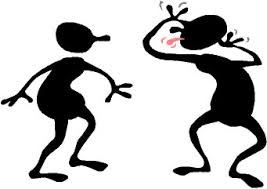记忆方法
将“jeer”与“jeer”一词的发音和动作联系起来。想象一个人(“jeer”)因为做了什么愚蠢或不适当的事情,而被周围的人以嘲笑或讥讽的声调(“jeer”)嘲笑。通过视觉化和发音的相似性,可以更快地记住这个单词的含义。
以上内容由AI生成, 仅供参考和借鉴
中文词源
jeer 嘲笑,奚落
词源不详,可能来自拟声词,模仿嘲笑的声音。或来自cheer的变体,词义贬义化。
英语词源
- jeer (v.)
- 1550s, gyr, "to deride, to mock," of uncertain origin; perhaps from Dutch gieren "to cry or roar," or German scheren "to plague, vex," literally "to shear." OED finds the suggestion that it is an ironical use of cheer "plausible and phonetically feasible, ... but ... beyond existing evidence." Related: Jeered; jeering.
- jeer (n.)
- 1620s, from jeer (v.).
权威例句
- 1. Threats to reinstate the tax elicited jeer from the Opposition.
- 恢复此项征税的威胁引起了反对党的嘲笑.
- 2. Do not jeer at the mistakes or misfortunes of others.
- 不要嘲笑别人的错误或不幸.
- 3. Look at those saddos going to the Royal Opera House, I would jeer.
- 看到那些去皇家歌剧院的蠢家伙,我会不屑一顾。
- 4. I didn't come here today to jeer: I want to give advice.
- 我今天到这儿来不是为了讽刺挖苦,我是想提些建议。
- 5. He was stabbed to the heart by the girl's jeer.
- 那女孩的嘲讽深深地刺伤了他的心.

